De Quervain’s Tenosynovitis is a painful inflammation of the distal forearm and wrist. Typically pain will be felt on activities that involve gripping with the hand and movements of the thumb and wrist. This condition often affects patients who have jobs which involve lots of repeated gripping and activities such as lifting heavy pots and pans or using tools such as a screwdriver. De Quervain’s can also affect people with more sedentary jobs who use a computer mouse for long periods. Symptoms can often occur during pregnancy and during the first year after childbirth. This is believed to be through a combination of hormonal changes often combined with changes in activity involved in looking after the newborn baby.
Patients often present to our clinic after trying other treatments such as rest, wrist splints and NSAIDs which have unfortunately proven unhelpful. Exercises and stretches can also sometimes be helpful, however the condition can often progress so that these treatments become too painful to perform. These conservative treatments will work in settling this condition for many patients but not all. This is when you might consider an injection.
De Quervain’s Tenosynovitis assessment process
Patients presenting at our clinic with this condition will first of all be tested using a number of recognised diagnostic clinical tests. An ultrasound scan will also be performed whereby specific local inflammation can easily be seen which will help to confirm the diagnosis. The ultrasound scan can also help to decide exactly which treatment approach is likely to give the best results. The ultrasound-guided injection for this condition is usually very comfortable and well tolerated. Following the injection the majority of patients will experience a very significant reduction in their symptoms within just a few days. As the symptoms begin to settle then the exercises and rehabilitation of the wrist and hand can commence. Your treating clinician will provide you with tailored guidance for ongoing treatment.
Please note that we do not offer injections for patients during pregnancy as the potential risks are unknown. We do offer injections to patients who are breastfeeding as the British breastfeeding Association has confirmed that low dose steroid injections do not present a risk to the breastfeeding baby.
If you have been diagnosed with De Quervain’s tenosynovitis or you think you might be suffering from this condition please contact us on injections@complete-physio.co.uk or call us on 02074823875 . We can arrange a telephone call from one of our highly experienced clinicians to help you decide on best course of treatment.
Other Wrist & Hand conditions:
- Osteoarthritis (OA) wrist joint
- Trigger Finger/thumb
- Carpal Tunnel Syndrome
- Osteoarthritis of the thumb
- Triangular fibrocartilage complex (TFCC)
- Scapholunate ligament injury (pain in the wrist)
Research Articles of Interest
Ashraf, M.O. and Devadoss, V.G., 2014. Systematic review and meta-analysis on steroid injection therapy for de Quervain’s tenosynovitis in adults. European Journal of Orthopaedic Surgery & Traumatology, 24(2), pp.149-157.
McDermott, J.D., Ilyas, A.M., Nazarian, L.N. and Leinberry, C.F., 2012. Ultrasound-guided injections for de Quervain’s tenosynovitis. Clinical Orthopaedics and Related Research®, 470(7), pp.1925-1931.
Peters-Veluthamaningal, C., Winters, J.C., Groenier, K.H. and Meyboom-deJong, B., 2009. Randomised controlled trial of local corticosteroid injections for de Quervain’s tenosynovitis in general practice. BMC musculoskeletal disorders, 10(1), p.131.
Richie III, C.A. and Briner, W.W., 2003. Corticosteroid injection for treatment of de Quervain’s tenosynovitis: a pooled quantitative literature evaluation. The Journal of the American Board of Family Practice, 16(2), pp.102-106.



Leave A Comment